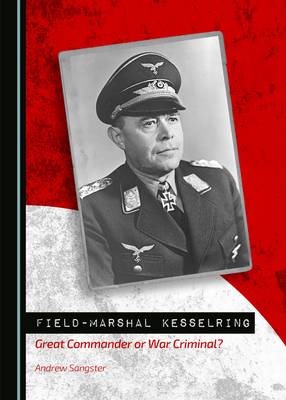Postwar analyses of Germany's last ever Field-Marshal, Albert Kesselring, have tended to be sympathetic and even adulatory in their appraisals. This book raises fundamental questions about their legitimacy, and challenges the widely held belief that he was one of the "greatest commanders to emerge" from the last World War. It illustrates that this reputation has been bolstered by the need to conceal the ineptitude and inexperience of Allied opposition. Often seen as a benign and good-natured patrician, the study shows that he was deeply implicated in the Nazi preparation for war, that he was guilty of serious war crimes, and that he committed perjury to save himself at the expense of a junior general. The book also highlights that the SS became a scapegoat for the whole Nazi regime, that he became a pawn in Cold War politics which assisted his release from execution and prison, that he survived the denazification process because it became a nonsense, that those who hoped he would assume a leadership in postwar Germany were disappointed by his inability to accept the new Europe, and that he died in ignominy. The book is a re-appraisal of Kesselring and demythologises many deeply held concepts of the period between 1930 and 1960.
- ISBN13 9781443874557
- Publish Date 9 March 2015
- Publish Status Active
- Publish Country GB
- Imprint Cambridge Scholars Publishing
- Edition Unabridged edition
- Format Hardcover
- Pages 335
- Language English
